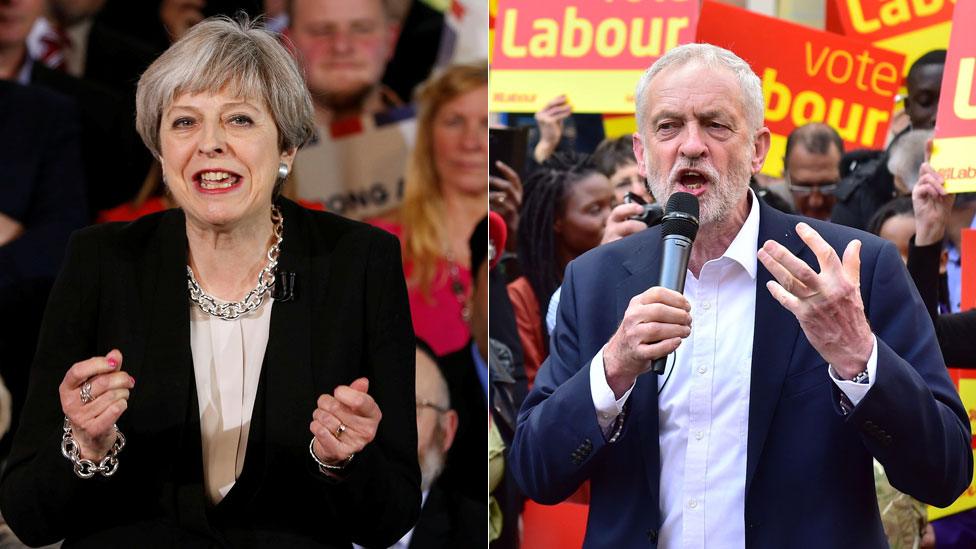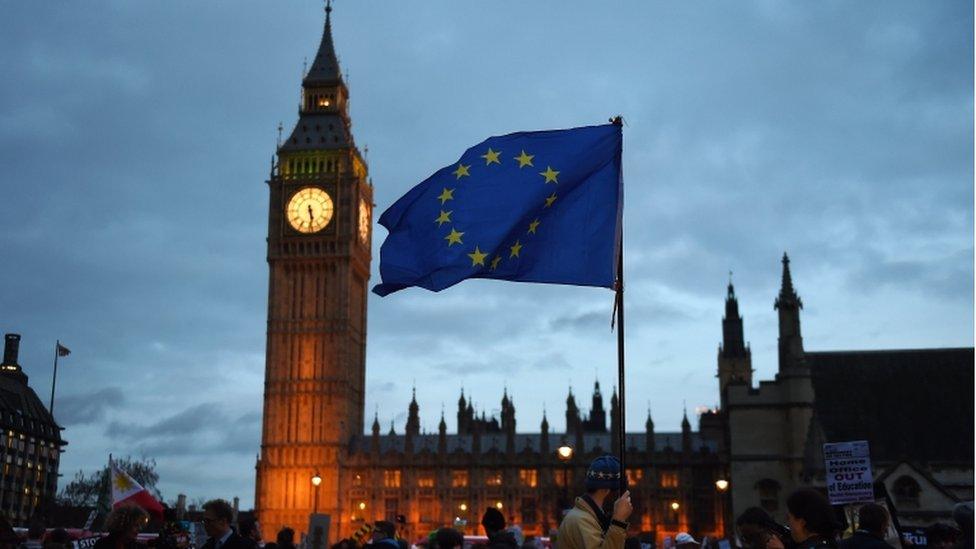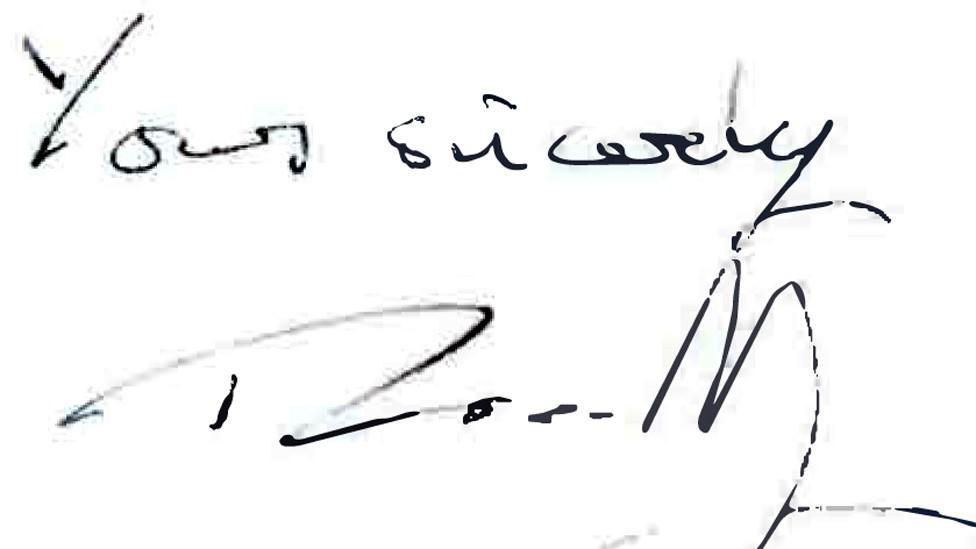Are May and Corbyn really chalk and cheese?
- Published

Chalk and cheese. Black and white. Night and day. Yin and yang.
Theresa May and Jeremy Corbyn are not, repeat not, cut from the same cloth. Their fundamental beliefs differ enormously. Their solutions for society's problems are poles apart.
Politicians in opposing parties are sometimes friends across the boundaries. But it is hard, extremely hard, to imagine the Labour leader and the Tory leader ever quietly enjoying a pootle round the Berkshire countryside of a weekend, or a cappuccino in Islington in a quiet moment.
But right at the start of this election - whisper it - there is something significant they share. Jeremy Corbyn, no surprise today, made his first big election speech, all about his classic theme.
For Labour it's the powerful versus the people, the Tories are the party of the wealthy and the elites - and he vowed proudly to tear up the political rule book that dictates elections are won from the centre. His repeated charge - that society is being "rigged" by elites making life unfair for the many.
That has been part of Jeremy Corbyn's political analysis forever. But it's more than that. The leadership believes, and has tested too, the analysis, the political message that the odds are "rigged" or stacked up against with voters.
Time is short
And they say it finds sympathy and agreement. The notion that life, society, is unfair, that those at the top aren't playing by the rules, has an appeal, and an appeal on a wide variety of issues - whether that's big companies dodging tax, astronomical house prices, or the insecurity of work.
They hope, therefore, that this message will pull voters towards Labour and Jeremy Corbyn. They know time is short, but they expect they will be able to make a significant dent in Theresa May's enormous poll lead. Can they do enough to get anywhere close? That's a different question altogether.
But remember Theresa May's first speech in Downing Street and numerous statements and interviews thereafter? Remember her talking about the "privileged few" time and time again?
Remember her direct appeal to those who are "just about managing", those who feel that life isn't fair, who are working hard, but the way that society is set up is somehow stacked against them? (the use of "privileged few" by the way seriously wound up former ministers who were part of the Cameron project who believed it was an attack on them)
Remember her promise to "ordinary working families" that they would be her priority, time and again, not the wealthy, not the few?
Same nerve
That doesn't sound quite so different from Jeremy Corbyn's view that there are millions of voters out there who believe "the system" doesn't work for them - his vow to take on the elites on behalf of "the people". The actual choice of terminology is different.
And of course, their choice of solutions to that problem varies wildly.
But it's worth noting that the rebel and the reverend's daughter have both chosen to try to touch the same nerve among the voting public.
They both will try to chase the sentiment among the public that life somehow isn't fair. Other elections have pitted completely contrasting assessments of the country as it is against each other.
But this won't be an election that puts a sunny vision against a doomsday scenario. One vital strand of the two main leaders' analyses of what might appeal to the electorate isn't quite so different after all.
- Published29 March 2017

- Published29 March 2017
